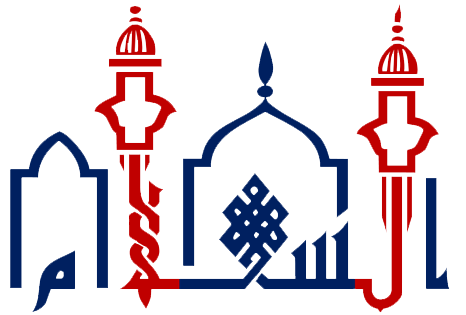By: Imam Ali Siddiqui
INJUNCTION
It is reported that the Prophet Muhammad (saw) said: “Remember! Zakat al-Fitr is Wajib (strongly recommended, just short of obligatory) on every Muslim, man or woman, free or in servitude, adult or child.” (Hadith: Tirmidhi’s Sunan)
MEANING
Literal meaning of Zakat (or Zakah) is the process of purification. Fitr is from the word Fitrah and its literal meaning is (one’s) nature or natural state. Hence the meaning of Zakat al-Fitr is to purify one’s nature.
PURPOSE
Ibn Abbas (ra) reported that the Prophet (saw) made the Zakat al-Fitr obligatory for the purpose of: purifying our fasting from vain talk and shameful mistakes, to make arrangements for the poor and the needy for food and clothing (for the festival of Eid). (Hadith: Abu Dawud, Ibn Maja)
WHO SHOULD PAY?
Every adult Muslim, with sufficient food for the family for a day, should pay Zakat al-Fitr for himself/herself and all his/her dependents. Even those who did not fast should pay it. Zakat al-Fitr should also be paid for the child born or the person died before the Fajr (dawn) on the day of Eid.
HOW MUCH SHOULD BE PAID?
At the time of the Prophet (saw), payment of Zakat al-Fitr was made in terms of weight of grain. It is one Sa for each person. One Sa approximately equals to 3.15 kg or 6.94 lbs. The Muslim jurists agree that Zakat al-Fitr can also be paid in cash equivalent to the cost of 3.15kg/6.94 lb. of grain including rice, wheat, lentils, corn, and dry cheese.
WHEN TO PAY?
Prophet Muhammad (saw) has said, “Whoever paid it (Zakat al-Fitr) before Salatul Eid, it is acceptable Zakat before Al’lah. Whoever paid it after Salat-ul-Eid, it is just a charity.” The companion of the Prophet (ra) used to pay it a few days earlier. (Hadith: Bukhari)
Imam Shafi’i held the opinion that Zakat al-Fitr can be paid as early as the beginning of Ramadan. I suggest that Zakat al-Fitr should be paid early enough so it will reach the needy and the poor before the Eid day. It will enable them to use it for food and clothes and give them the opportunity to enjoy the happiness of Eid-ul-Fitr.
WHO SHOULD BE PAID?
Zakat al-Fitr should be paid directly to the needy and the poor. However, you can also pay it to an organization, which would distribute it in accordance with the teaching of Islam. Remember! It is still your responsibility. So, make sure before paying that the organization will distribute it according to the teaching of Islam and before Salat-ul-Eid.
There is a new concern in collection and distribution of Zakat al-Fitr and Zakat-ul-Maal. Millions of dollars have been confiscated by the government agencies. This requires additional care on our part to select an organization carefully and rationally so that Zakat is delivered to the rightful person. Best method is still the personal contact.
Year after year Zakat is sent to deserving persons in the Muslim World. Let’s try to spend some of it in our own communities including Moaliful Qoloob, non-Muslims to turn their hearts and minds as friends of our communities. This will require knowing our own communities and friendly and deserving non-Muslims. It may be difficult at first but it will be better for us.
HOW TO CALCULATE ZAKAT AL-FITR
Zakat al-fitr is a flat amount per household member paid by the head of the household for himself and his or her dependents. It is estimated for $8 per person for the year 2012. It should be paid no later that the eid-al-fitr. For example, a married person with three children should add the number of his household and multiply by $8. The total amount is thus calculated: 5×8=$40.
About the author:
Imam Ali Siddiqui with 37 years of service, is a Friday Khatib, Islamic teacher, Muslim Chaplain, youth advisor, family counselor, educator, poet and writer with a vision who has been involved in the teaching Islam, history, comparative religion, contemporary issues to Muslims and non-Muslims. He is actively involved in the community service including spiritual/educational development, service to the sick and the incarcerated; and the interfaith work. Imam Siddiqui’s work has been successfully building bridges between communities. Additional information can be acquired by contacting the Imam: siddiqui@aol.com
